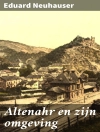In ‘Jews and Moors in Spain, ‘ Joseph Krauskopf offers an incisive exploration of the intricate tapestry of Jewish and Moorish cultures in medieval Spain. Written in a scholarly yet accessible style, Krauskopf meticulously examines historical intersections, cultural exchanges, and the shared narratives of these two communities during a tumultuous period marked by religious strife and social dynamism. This work not only delineates the historical facts but also delves into the enduring legacies of coexistence and conflict, situating its discourse within broader themes of tolerance and societal transformation in the Iberian Peninsula. Joseph Krauskopf, an influential Jewish theologian and educator, was deeply immersed in issues of cultural identity and interfaith dialogue, which undoubtedly shaped his perspective in this book. His academic pursuits and commitment to social justice reflect his desire to bridge gaps between disparate communities, making him uniquely positioned to dissect the complex relationships between Jews and Moors. Krauskopf’s robust scholarship is informed by a rich historical context, reflecting the confluence of cultures that defined medieval Spain. This book is highly recommended for readers interested in Jewish studies, Islamic history, and the intricate narratives of intercultural dialogue. Krauskopf’s engaging prose and thorough research provide valuable insights into the shared heritage of these communities, inviting readers to reflect on the implications of historical coexistence in contemporary discussions of diversity and tolerance.
เกี่ยวกับผู้แต่ง
Joseph Krauskopf (1858-1923) was an influential American rabbi, author, and social activist. He played a notable role in the Jewish community, particularly as the leader of Reform congregation Keneseth Israel in Philadelphia. An advocate for progress and interfaith dialogue, Krauskopf was deeply involved in educational and philanthropic pursuits. His scholarly interests led him to pen several works, among which ‘Jews and Moors in Spain’ remains a significant contribution. In this volume, Krauskopf delves into the complex historical interactions between Jews and Moors wherein mutual cultural and intellectual exchanges flourished. Krauskopf’s literary style is marked by clarity and thoroughness, artfully rendering the intricate nuances of medieval Spanish society. His commitment to unveiling the past to serve the present is evident in his writings, which often reflect his broader aim of fostering understanding and unity among diverse communities. Through his literary and communal efforts, Krauskopf not only shaped the trajectory of American Jewish life but also carved a niche for himself in the broader landscape of Jewish historical and cultural scholarship.












